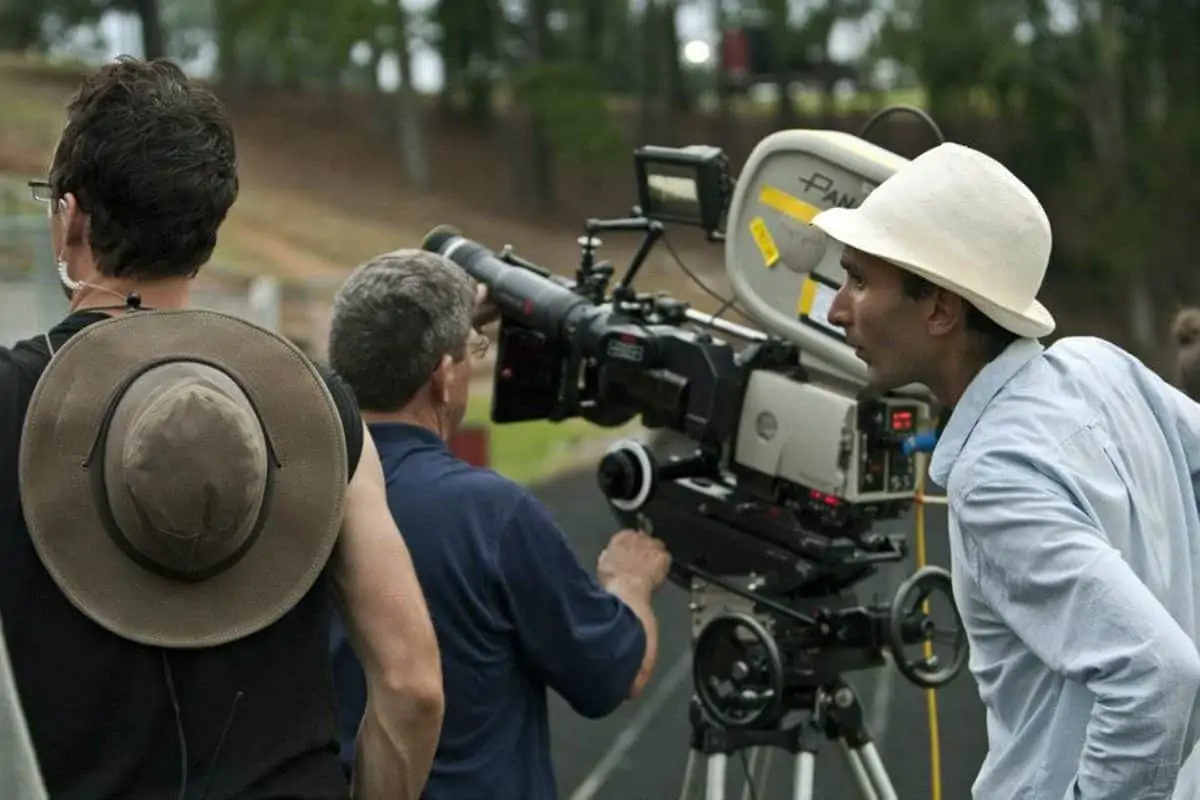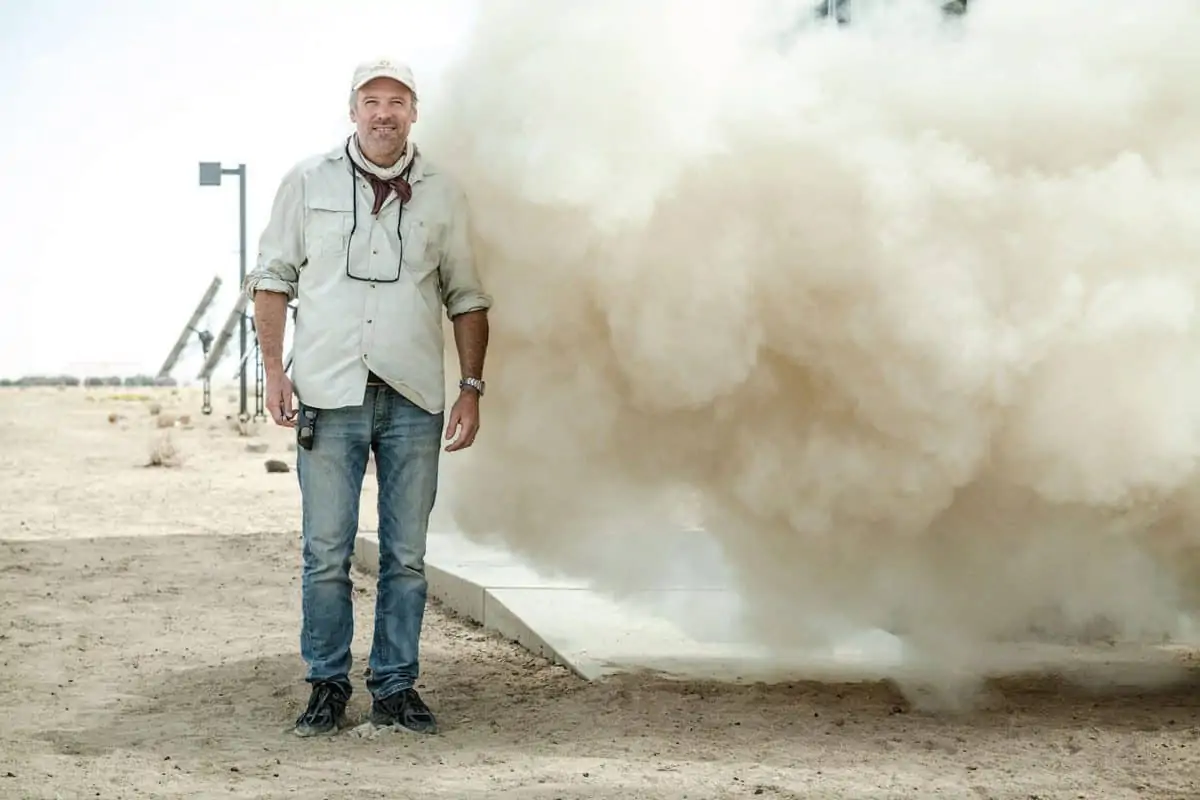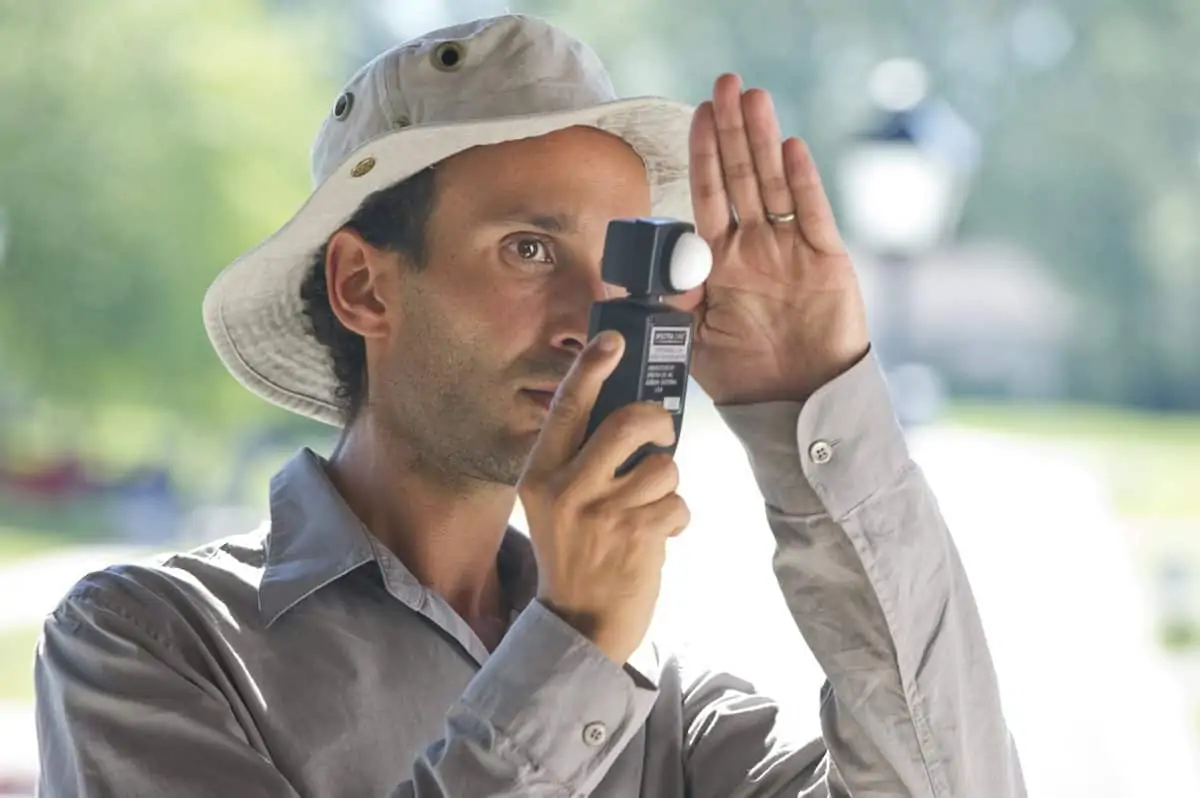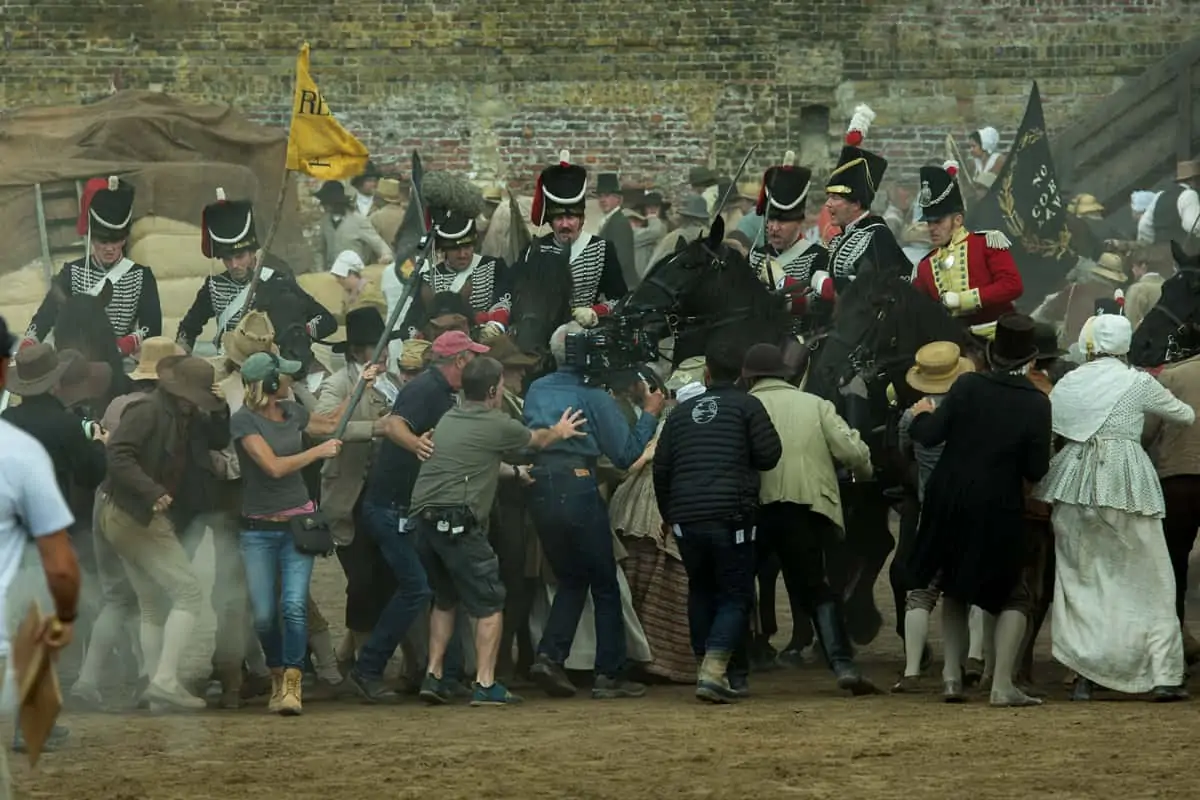Our Man In Mauritius
Jess Hall BSC / Serenity
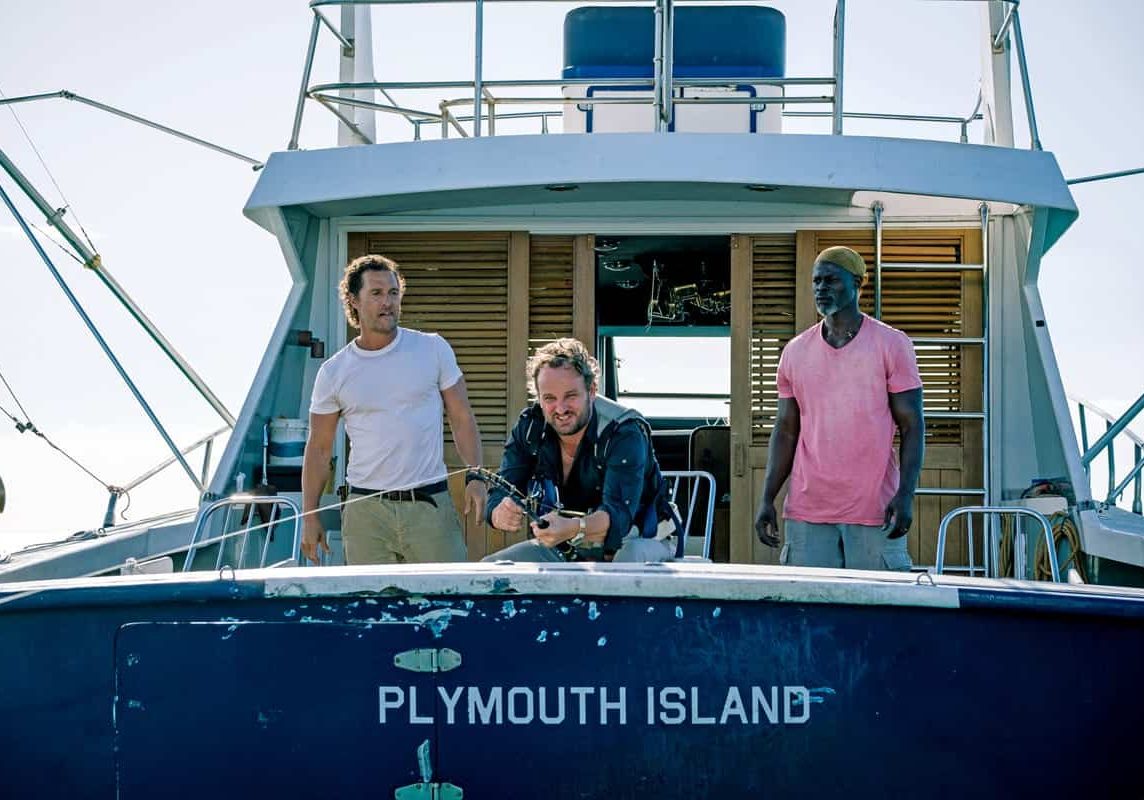
Our Man In Mauritius
Jess Hall BSC / Serenity
WANT TO READ IT ALL?
Below is only a teaser, and the full interview can be found in the September 2018 issue (89) of British Cinematographer magazine.
If you purchase a year’s digital subscription from just £30, or a year’s all-inclusive subscription from just £64, you can read the interview in Issue 89 by clicking HERE. You will also receive access to the rest of our extensive back catalogue.
CLICK TO BUY A DIGITAL SUBSCRIPTION
CLICK TO BUY A PRINT & DIGITAL SUBSCRIPTION
BY: Ron Prince
It’s been described by reviewers as a sexy noir thriller, “but that would be the easy description,” says cinematographer Jess Hall BSC about Serenity, the movie he shot in mercurial weather conditions on the Indian Ocean island of Mauritius in 2017. “During production, one of our producers, Guy Heeley, called it an existential fishing thriller, which I kind of like. It’s certainly an unusual film, with strange and sinister twists. Visually, to me, it feels part like an Ernest Hemingway or Graham Greene novel, which gradually transitions into something akin to the edgy atmosphere of Polanski’s Knife In The Water.
Serenity was written and directed by Steven Knight, who previously helmed and scripted Locke (2013, DP Haris Zambarloukos BSC GSC), and penned the screenplays for Dirty Pretty Things (2002, dir. Stephen Frears, DP Chris Menges BSC ASC) and Eastern Promises (2007, dir. David Cronenberg, DP Peter Suschitzky).
The narrative centres on Baker Dill (Matthew McConaughey), a fishing boat captain who leads big-game angling tours out of a tranquil, tropical enclave called Plymouth Island. However, his quiet life is shattered when his ex-wife, Karen (Anne Hathaway), tracks him down with a desperate plea for help. She begs Dill to save her, and their young son, from her new violent husband (Jason Clarke) by taking him out on a fishing excursion, whereby he’s to be thrown to the sharks and left for dead. Karen’s appearance thrusts Dill back into a life he has tried to forget. As he struggles between right and wrong, his world is plunged into a new reality that may not be all that it seems.
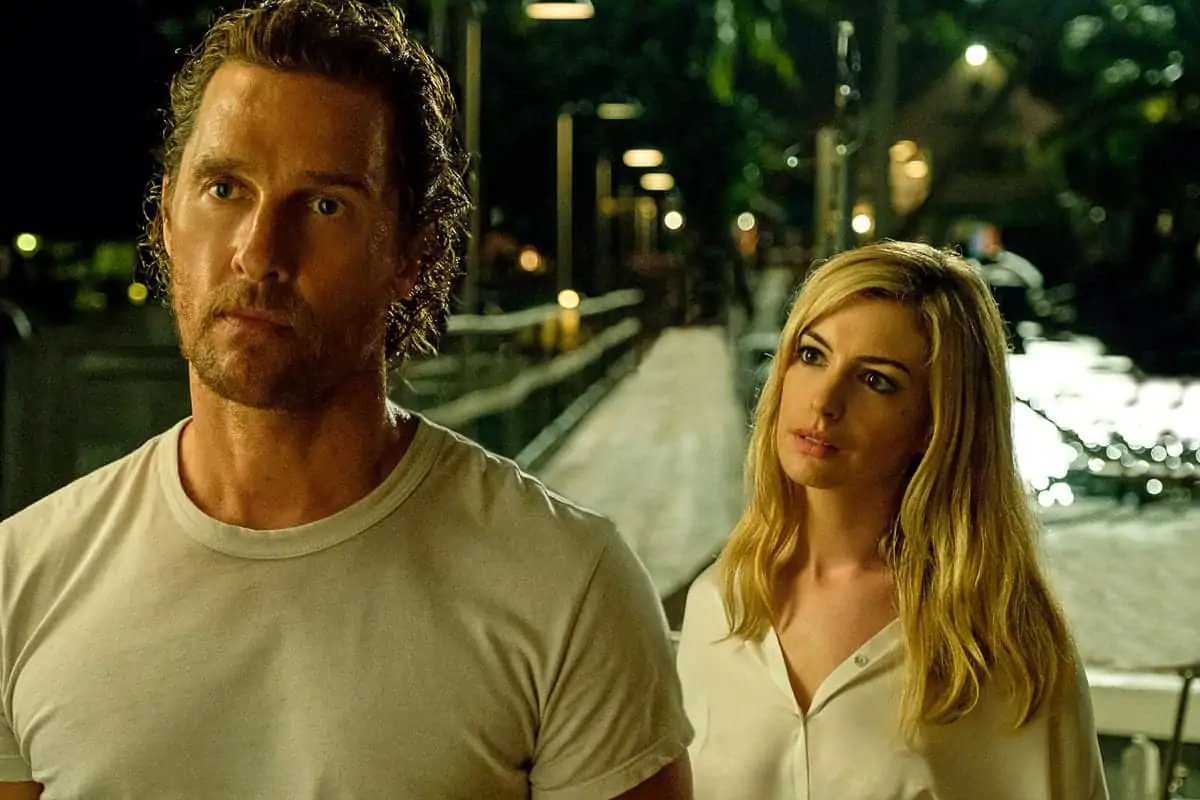
Hall says he got an initial call from Heeley about the production, whilst driving from his Santa Monica home to San Francisco, for a short holiday with the family.
“Things were coming together really fast, and I spoke to Steven the following day” Hall recalls. “We connected immediately and I found myself on the plane to Mauritius three days later to start prep. I had a real affinity for the story, having grown up spending important parts of my childhood with my Grandparents in Jamaica. To me it evoked intriguing tales of former colonial territories, where the rum is strong and where, beneath the sleepy façade, everyone knows everyone else’s business. I loved the dysfunctional characters in the screenplay, and the sinister machinations lurking just beneath the surface.”
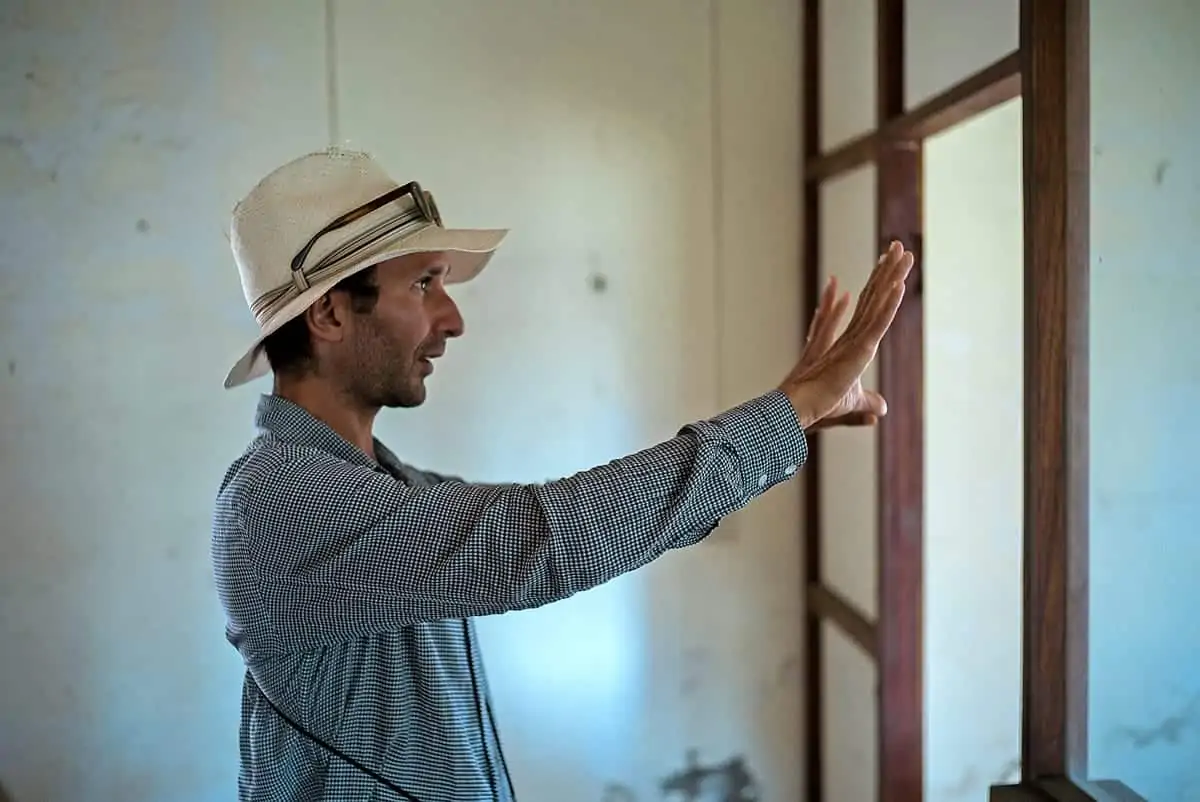
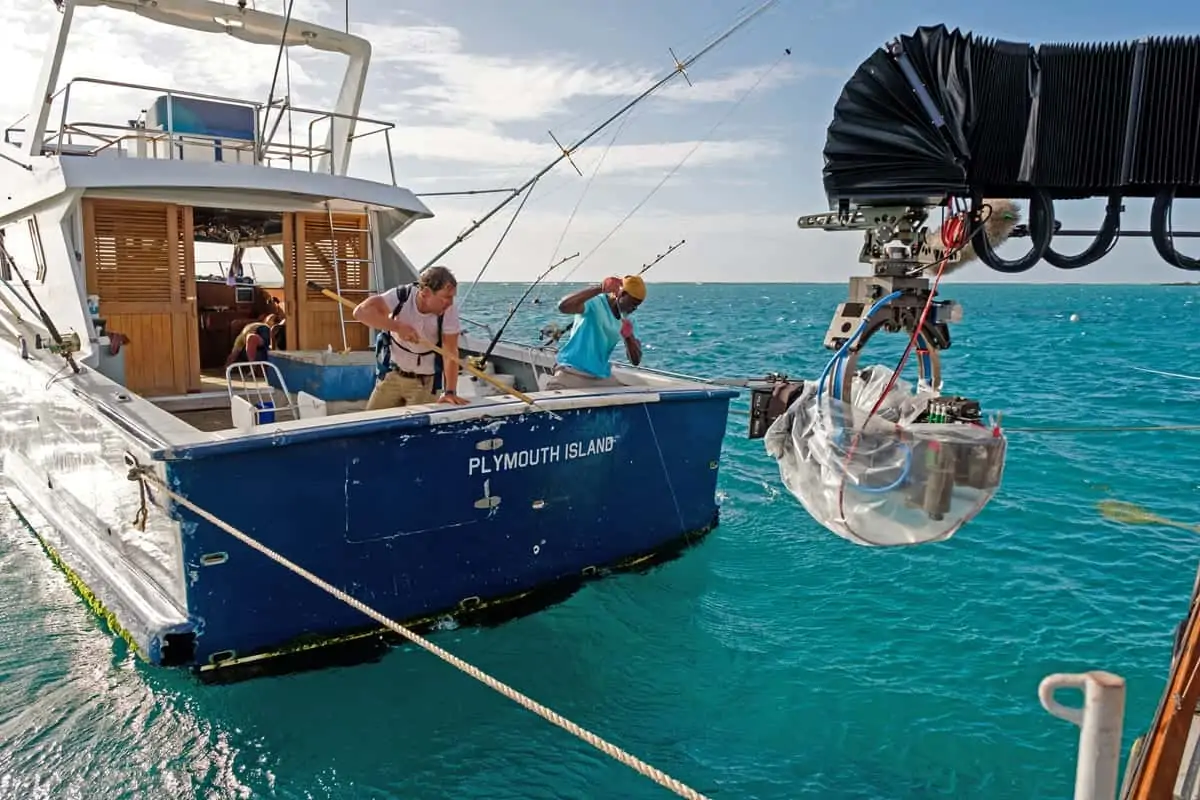
Whilst directors and cinematographers frequently take their visual inspirations from feature films, Hall says in this case the muses were of a more literary nature.
“I created a small reference book for Steven in pre-production, with film stills from A Touch Of Evil, The Third Man, Chinatown, Citizen Kane and Road To Perdition, as well as still photographs by Thomas Ruff, Joel Meyeorwitz and Saul Leiter. The only movie I really considered was Roman Polanski’s Knife In The Water (1962, DP Jerzy Lipman), for its exceptional camera placement and blocking entirely on-board the boat, which creates intense dramatic tension and realism.
“However my main references turned out to be from literary sources. The natural light in Mauritius is quite unique, with a soft purple in the shadows of the dusk light that penetrates the water and infuses it with a wonderful quality. Whilst we were out scouting on the boat one evening, Steven referred to Homer’s description of the ocean in ‘The Odyssey’, as “the wine dark sea”. It inspired me to read ‘The Odyssey’ as we began principal photography, and I began to see Baker Dill’s character as somewhat of a sea-bound hero on an epic voyage. During production, this drew me to frame him in lower-angle compositions, often against the wide sky or the taller architecture of his vessel.”
READ IT ALL
The full interview can be found in the September 2018 issue (89) of British Cinematographer magazine.
If you purchase a year’s digital subscription from just £30, or a year’s all-inclusive subscription from just £64, you can read the interview in Issue 89 by clicking HERE. You will also receive access to the rest of our extensive back catalogue.

